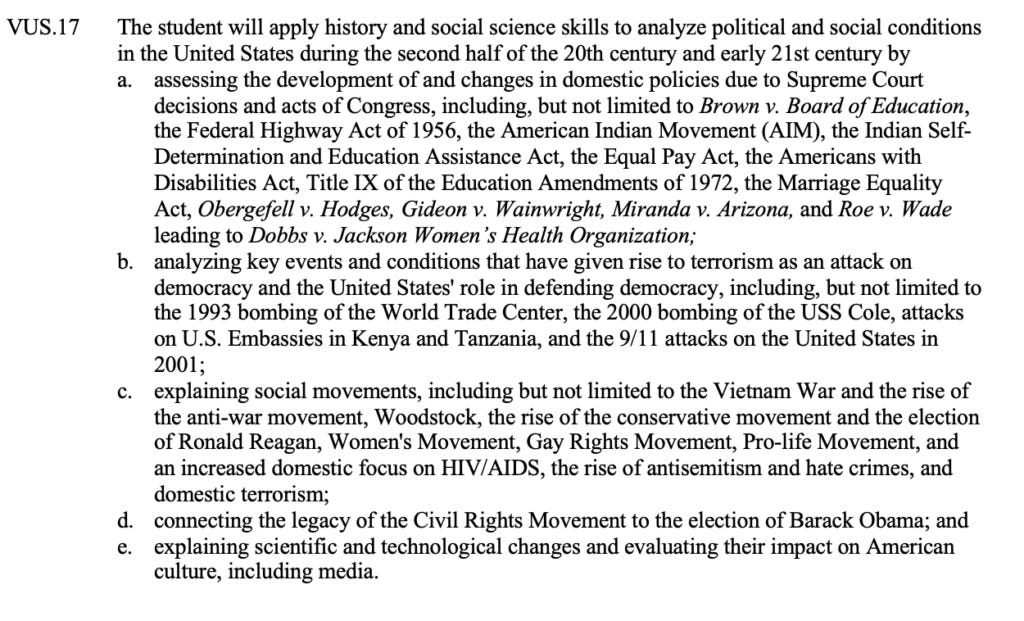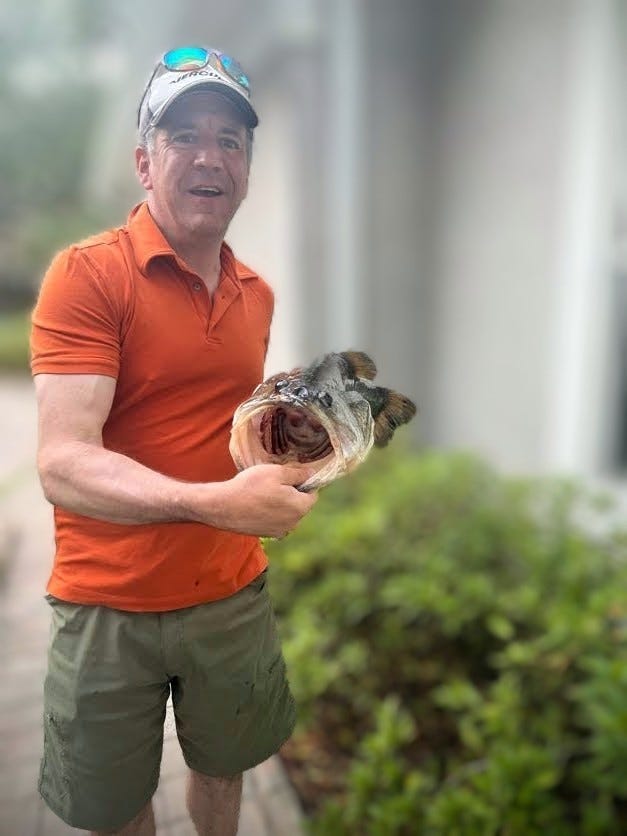Why We Can't Have Nice Things, But We Do Have Fish!
Parker Baxter fishes, Julia Silverman reports...
Congrats to my colleagues Amy Chen Kulesa and Alex Spurrier for their winning essay in Fordham's Wonkaton. Alex and Amy take a measured look at the potential of AI. Not kool aid, and not cold water.
Dutch Treat.
Earlier this week Secretary of Education Cardona gaffed. Apparently unaware that President Reagan was not much of a fan of large government Cardona deployed Reagan's famous 1986 press conference quip, "I think you all know that I've always felt the nine most terrifying words in the English language are: I'm from the Government, and I'm here to help." The problem? Cardona dropped the terrifying part and merely said he wanted to help, like Reagan had said. Oops.
Look, two things are true at once here. One is if part of your job is saying a lot of words you're going to screw some of them up. It's inevitable. Especially if you're tired, stressed, or whatever. (I'm assuming here this wasn't in prepared remarks or talking points but was a botched audible). I still cringe when I think about mistakes I've made. I once mixed up a Kennedy and Einstein quote, that in that case could have been given by either man though the Einstein one is iconic, because I was at the Kennedy School and nervous giving a talk. That I can pretty vividly recall the moment years later tells you how painful these things are if you're the kind of person who cares. Cardona's job requires saying a lot of words. It happens. Yet of course it was catnip for conservatives given that this mistake lies at the center of a Venn diagram of things they care about. That's fair, Cardona is a political figure and turnabout is fair play. Democrats did the same thing with DeVos.
The other thing that's true, however, is this is part and parcel of what happens as we move away from a focus on rigor, knowledge, and facts in school and society. You don't have to be the kind of person who can recall page numbers in Lou Cannon's books to know that Reagan was a conservative, he was the vanguard of the conservative movement, and the 1980 and 1984 elections were consequential. Whether you're a conservative or not that's relevant cultural knowledge and cultural capital in the same way that you should understand some high level things about FDR and Johnson whether or not you're a Democrat or a progressive. The secretary should have known this orientation given his role - and especially given Reagan's history with the Department of Education.
Why would he though? Listening to Cardona these past few years he doesn't seem like the kind of guy who spends a lot of time with people who disagree with or challenge him. The media sure doesn't. And our current environment leaves little room for acknowledging the other side has a point.
So when Rick Hess points out that there is a double standard here with regard to Betsy DeVos, he's right. The coverage of Cardona has been remarkably credulous with profiles that read like source greasing and access exercises with the administration.
The thing to remember about DeVos, though, is that two things were also true. She sure made some missteps, and she was never going to get a fair shake regardless. An early tell was when then-Senator Al Franken talked over her and mansplained about an accountability question neither of them understood. As I noted at the time if a Republican man had done that to a Democratic woman all hell would have - rightly - broken loose. So Rick's also right there are just a lot of double standards.
But that's life. What should worry us in the education community is that all this wouldn't fly with a Secretary of Defense, State, Treasury, or an Attorney General. As long as we accept it as business as usual in this part of the world we get what we deserve. And right now that's a trivial back and forth about Cardona and Reagan even as a generation of kids sinks below the surface because neither party in Washington can be bothered to lean in.
That, not whether Secretary Cardona doesn't know Reagan 101 or misspoke in the moment, is the real problem here.
Through the education rhetoric looking glass.
Dana Goldstein has a piece in The New York Times about history/civics standards in three different states, Florida, South Dakota, and Virginia. Mike Petrilli immediately objected to some bias in the article. He's not wrong (and I don't always say that on media stuff), this sort of selective exercise is almost always bias confirming and bubble revealing. If you really wanted to compare the three states side-by-side it would be a useful and illuminating and probably not narrative confirming exercise. Even better, look at the process by which they were developed in each state. Regional emphasis, various changes, big debates. That’s where the action is. Lumping these states together obscures more than it reveals. We ought to be having a more sophisticated conversation about different approaches to content and skills and teaching challenging material than this culture war approach to covering these issues allows. Don't hold your breath.
Oh, and by the way, communism was bad for hundreds of millions in the 20th century....
This Jim Traub Politico piece is much better reported if you want to know what's going on in Virginia and has some nuance on the pedagogical questions.
On the politics, Republican governors are happy to have The New York Times write articles like this all day every day. It's part of the brain numbing back and forth of narrative driven politics and journalism. These stories aren't hit pieces, they're gifts. Getting attacked in the New York Times for being too conservative on history standards is about the best press a Republican governor can get.
That's politics though. Why it matters is twofold. First, it leaves readers with a skewed sense of these issues. That's not helpful to the exhausted middle. But also, because, as Traub points out, Virginia got to a place of unity and quality on its history and civic standards. They passed a politically diverse board unanimously. No small thing in this climate. Now comes the hard part, implementation. And there are conflict entrepreneurs on both sides who would love to see that go sideways or keep up the fight, especially right now activists on the left for whom getting Virginia Governor Glenn Youngkin is more important than getting things done. Articles like this makes their work easier, the work of implementation harder, and it's consequently bad for Virginia students.
This is why we can't have nice things.
By the way, if he went to high school in Virginia now Secretary Cardona would know heads from tails about Ronald Reagan:
Credit Where It's Due:
This Portland teachers strike was a mess. Don't take my word for it, the union's chair of its negotiating committee quit over it saying the learning loss wasn't worth the gains and the gains were meager because union leadership didn't do their homework. But while the national press couldn't be bothered with a strike that had kids out of school from Halloween until this past Monday the local press, in particular the Oregonian's Julia Silverman, did a fantastic job and set a standard on how how to cover these things. They covered both sides, were not in the bag for any faction, checked facts and math, and hustled and reported. Well done. More please.
It's Friday. I have fish porn:
This is Parker Baxter with a fat largemouth bass from Florida. He bills it has a modest size fish for down there, but c'mon, that's a beast. You can find Parker at his day job at CU Denver's School of Public Affairs.
Want more? These pictures are just two in this unique archive of hundreds of pictures of education types with fish. Send me yours!






